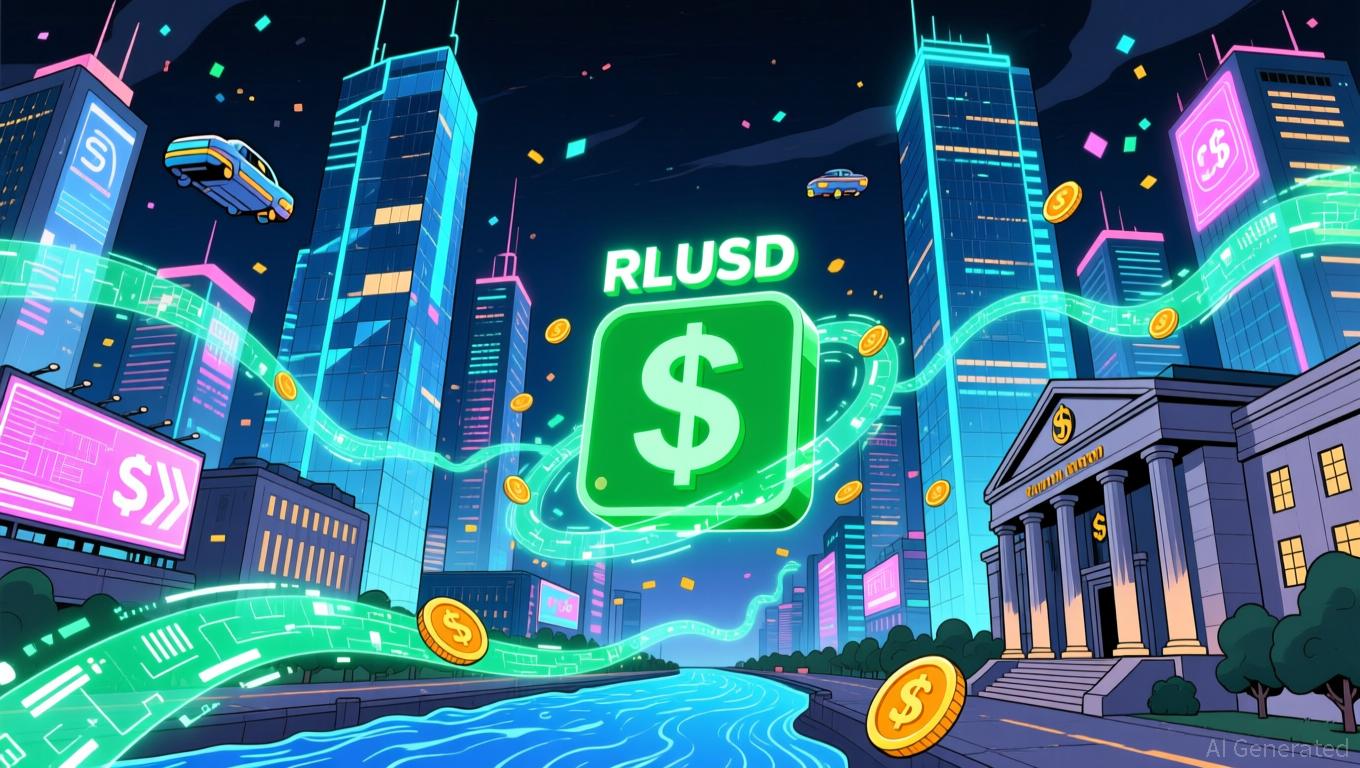TWT's Updated Tokenomics: Genuine Sustainability or Just Postponing Devaluation?
- Trust Wallet Token (TWT) rebranded as Toncoin in 2025, shifting from governance to gamified utility via the Trust Premium loyalty program. - A 2020 token burn eliminated 88.9B TWT (40% of supply), creating scarcity but raising liquidity concerns amid limited adoption incentives. - TNSR's market resilience contrasts with TWT's risks, as centralized utilities and opaque supply management threaten liquidity and institutional trust. - TWT's success depends on balancing gamified engagement with decentralized
Structural Changes: From Governance to Gamified Utility
In 2025, TWT’s tokenomics will shift focus from governance to gamified utility, launching the Trust Premium loyalty scheme. This program incentivizes users for activities such as swapping, staking, and holding
A pivotal part of this overhaul was the 2020 token burn, which removed 88.9 billion TWT from circulation—creating scarcity but also sparking liquidity concerns. By that year, more than 40% of TWT tokens were already available on the market, so the burn’s scarcity effect could be weakened if liquidity remains low. Some observers
Utility and Adoption: A Double-Edged Sword
The effectiveness of the Trust Premium model depends on attracting a large user base. If the program fails to reach enough participants, the token’s practical use—and its price—could remain limited. For comparison, staking rewards in 2024 averaged 18.5% for
TNSR’s recent performance during a market downturn provides a contrasting case. Its strong position in the
Liquidity and Transparency: Critical Gaps
Issues of transparency and liquidity remain unresolved. TWT’s tokenomics do not offer the same clarity as projects like Monad, which locks over half its supply at launch to support long-term objectives. In contrast, TWT’s less transparent approach to supply could discourage institutional investors, who value predictability
Liquidity challenges are further highlighted by TNSR’s recent situation. Following Coinbase’s purchase of Vector.fun, TNSR holders lost access to a key utility (Vector’s consumer app), turning the governance token into one with fewer practical uses. This led to increased selling and price swings, highlighting the vulnerability of tokens that rely on centralized platforms
TNSR Analogy: Lessons for TWT
TNSR’s adoption of open-source protocols and grant initiatives has broadened its revenue streams but also brought the risk of increased selling from large token distributions. TWT’s 2025 update must similarly find a balance between expanding utility and managing supply. For example, TNSR’s emphasis on real-world assets and AI-powered tools has added both complexity and execution risk
Conclusion: A Delicate Balance
TWT’s tokenomics redesign marks a strategic move toward value based on real utility, but its future depends on overcoming challenges in liquidity, transparency, and adoption. The gamification and scarcity elements are encouraging, yet they echo the vulnerabilities seen in TNSR’s post-acquisition decline. If Trust Wallet can maintain user momentum and align incentives with ecosystem development, TWT could sidestep the fate of purely speculative governance tokens. Still, without strong liquidity solutions and transparent practices suitable for institutions, these changes may only postpone a potential downturn.
Investors should keep an eye on critical indicators: Trust Premium’s user growth, staking involvement, and how TWT compares to TNSR’s track record. At present, TWT’s tokenomics walk a fine line between breakthrough and instability—a risk that could either yield rewards or falter under market stress.
Disclaimer: The content of this article solely reflects the author's opinion and does not represent the platform in any capacity. This article is not intended to serve as a reference for making investment decisions.
You may also like
Bitcoin News Today: Bitcoin surges to $90K—Is this a sign of a new cycle or an early warning of another downturn?
- Bitcoin surged past $90,000 amid November's 29% drop from its October $126,000 peak, signaling a tentative recovery. - Ethereum , Solana , and other major cryptos rose 3-5%, while the Crypto Fear & Greed Index improved slightly to 15. - Technical indicators show Bitcoin testing critical levels, with analysts divided on whether $90,000 marks a cyclical bottom or temporary respite. - Institutional flows and on-chain data reveal mixed sentiment, as Fed policy uncertainty and bearish structures persist. - Lo
The Iceberg Phenomenon: Unseen Dangers of AI’s Labor Force Surface Across the Country
- MIT's Iceberg Index reveals AI could replace 11.7% of U.S. jobs ($1.2T in wages), impacting sectors like finance and healthcare beyond tech hubs. - The tool maps 151M workers across 923 occupations, highlighting hidden risks in routine roles (e.g., HR, logistics) versus visible tech layoffs. - States like Tennessee and Utah use the index for reskilling strategies, while C3.ai partners with Microsoft to expand enterprise AI solutions. - Despite C3.ai's market expansion, its stock faces volatility, reflect
Where Saving Animals and Supporting People Come Together: The Gentle Barn's Comprehensive Approach
- The Gentle Barn, a California-Tennessee sanctuary, merges animal rescue with human emotional healing through acupuncture, mobility aids, and therapeutic interactions. - Its volunteer programs and $75 season passes support financial sustainability while fostering compassion between humans and rescued animals like turkeys and hoofless goats. - The nonprofit's holistic model attracts attention as a case study in combining veterinary care with mental health initiatives, despite scalability challenges in nonp

XRP News Today: With Tether and USDC under examination, RLUSD from the UAE stands out as a regulatory-compliant stablecoin option.
- Ripple's RLUSD stablecoin received ADGM approval as a regulated fiat-referenced token in Abu Dhabi, enabling institutional use in payments and treasury management. - Pegged 1:1 to the USD with NYDFS oversight, RLUSD ($1.2B market cap) offers compliance-driven alternatives to USDT/USDC amid global regulatory scrutiny. - UAE's ADGM-DIFC regulatory framework positions the region as a crypto innovation hub, with Ripple expanding partnerships through Zand Bank and Mamo fintech . - The approval aligns with UAE
